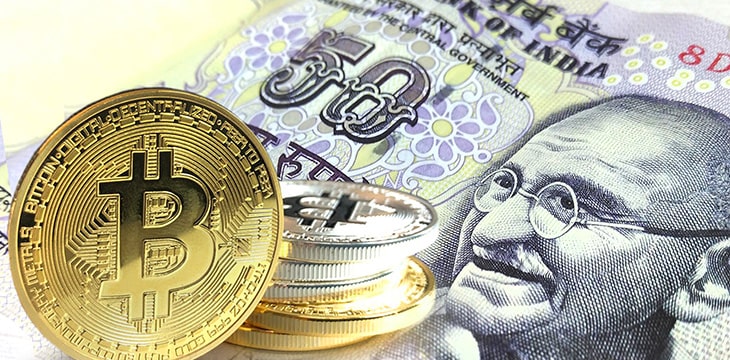India digital currency sector hopeful of regulation during Feb 1 budget presentation
One of the world’s largest digital currency hubs has been in regulatory limbo for quite some time now, but many are hoping this will change in a week’s time. On February 1, India’s Finance Minister Nirmala Sitharaman will present the country’s budget, and some are hopeful that she’ll talk about digital asset regulations.
India has gone through various stages of its digital currency regulation, from the Reserve Bank of India (RBI) barring banks from dealing with digital currency firms to the government saying it will issue a blanket ban to parliament working on enabling regulations. However, none of them have stuck, and India is still lacking any definitive regulations for the rapidly growing industry.
Sharan Nair, the chief business officer for CoinSwitch Kuber, the largest digital asset exchange in India, is among those hopeful that the budget reading will contain guidance for digital currencies.
“We hope the upcoming Union Budget will bring in regulatory clarity and help standardize best practices, address misconceptions around this emerging asset class. We believe a regularised environment will encourage more Indians to start their crypto investing journey,” Nair stated, speaking recently to the financial newspaper Mint.
Nair isn’t alone in hoping for regulations. Saurabh Tripathi, the regional leader for the Boston Consulting Group (BCG) in the APAC region, believes it’s time the government shed light on what it expects from Bitcoin users. He is calling for “progressive regulatory framework that can create enabling environment where innovation can thrive in a legal way.”
Vaibhav Kakkar concurs. The partner at a local law firm told Mint that India’s approach to digital currency regulations had undergone a significant rethink over the past few years. In 2020, Indians expected more nuance and clarity, he says.
“The budget session this year would shed more light on the next steps in developing regulations, if not table and discuss the bill itself in the parliament,” Kakkar added. “Crypto regulation will have to focus on identifying, monitoring and managing risks in the ecosystem.”
However, even as the local digital currency community remains optimistic that the government will offer guidance, many are approaching the budget reading with cautious optimism.
India’s budget presentation takes about two hours, with Finance Minister Nirmala Sitharaman expected to go into detail about how the government will divide its resources and whether the tax regime will be adjusted.
The minister is likely to stick to topics that are either quite crucial—like security, provision of employment, health, and education—as well as topics that are likely to appease the masses. The second area of focus is especially important this year, with the elections coming up.
One policy expert who works closely with the government told an online news outlet that digital currencies will likely take a backseat as “they don’t get you votes.”
“The budget speech is roughly two hours. There are a lot of things to be said. Five states are going to elections. This might not be a priority,” he added.
Subhash Garg, the former secretary in the Department of Economic Affairs at the Finance Ministry, says that it’s anybody’s guess what the budget will contain. However, he believes that government is likely to avoid the topic as it might stir controversy.
Garg was one of the key people behind the Indian government’s first report on digital currencies, which at the time proposed a blanket ban. He now says he has changed and favors having enabling regulations.
“It is likely to get a mention. But the government may avoid it altogether too. Why enter into a controversy unless there is clarity on how to deal with cryptocurrencies? So far, the government has not made clear how it plans to deal with cryptocurrencies,” he commented.
Watch: CoinGeek New York presentation, The Path to BitCoin Adoption: How to Turn the Entire Web into Bitcoin Apps
Source: Read Full Article



